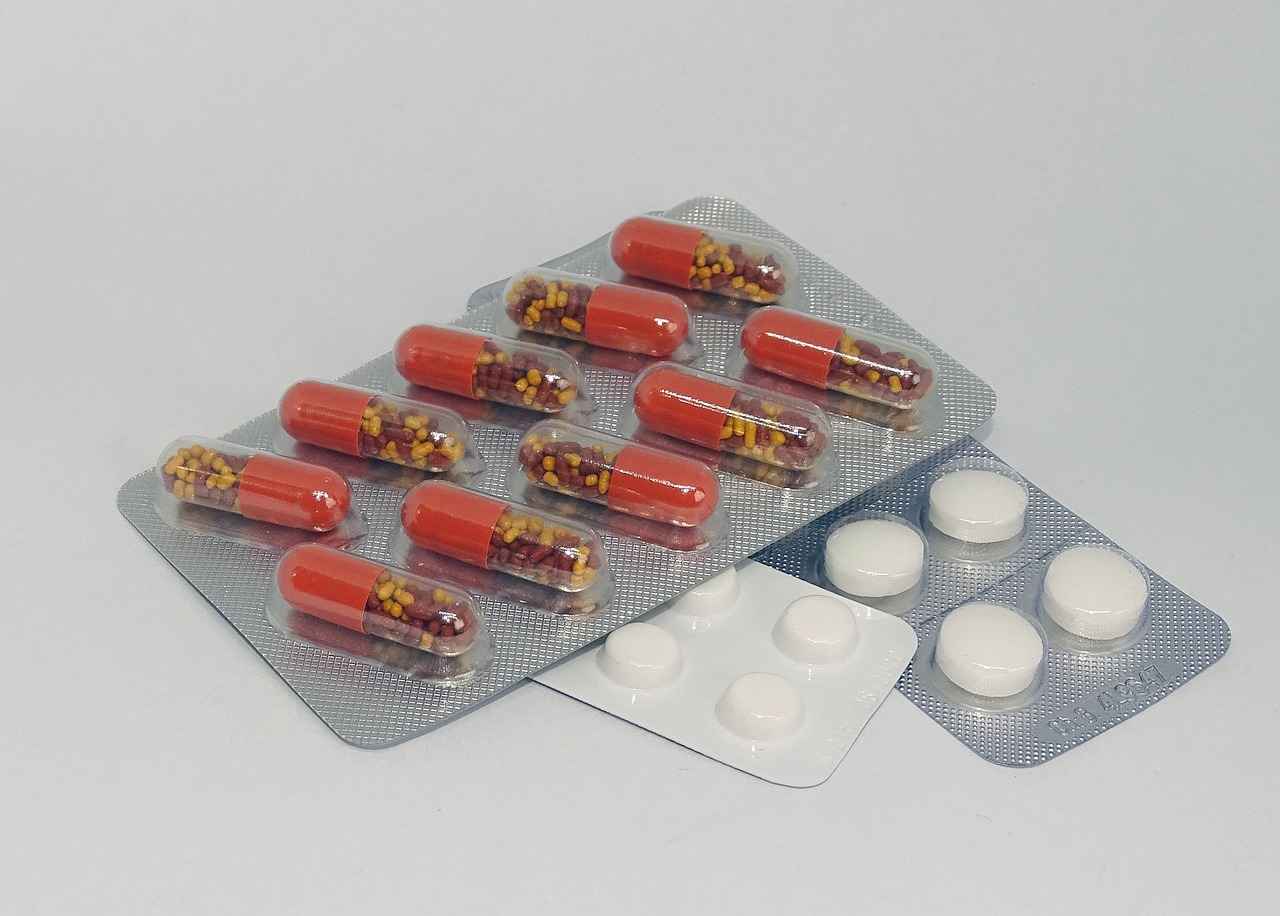This article delves into the essential role that zinc plays in supporting a strong immune system. Zinc is not only crucial for various biological functions but also serves as a key player in enhancing the body’s defense mechanisms against diseases. In this discussion, we will explore the benefits of zinc, identify its sources, and examine the consequences of zinc deficiency on overall health.
What is Zinc and Why is it Important?
Zinc is a vital trace mineral that our bodies require in small amounts for numerous biological processes. It is essential for immune response, enzymatic reactions, and DNA synthesis. Without sufficient zinc, our bodies struggle to function optimally, leading to various health issues.
How Zinc Supports Immune Function
This mineral plays a pivotal role in the development and functioning of immune cells, thereby enhancing the body’s ability to combat infections. Zinc is particularly important for the maturation of T cells, which are crucial components of the immune system.
The Role of Zinc in T Cell Function
T cells require adequate zinc levels for their maturation and functionality. This directly impacts the immune response, allowing the body to effectively fight off pathogens.
Zinc Deficiency and Immune Impairment
A deficiency in zinc can lead to weakened T cell function, resulting in increased susceptibility to infections and reduced vaccine efficacy. Therefore, maintaining appropriate zinc levels is vital for overall health.
Food Sources of Zinc
| Food Source | Zinc Content (mg) |
|---|---|
| Oysters | 74 |
| Red Meat | 5-9 |
| Poultry | 2-3 |
| Beans | 1-3 |
| Nuts | 1-3 |
Symptoms of Zinc Deficiency
Insufficient zinc levels can manifest in various ways, including a weakened immune response, delayed wound healing, hair loss, and alterations in taste or smell. Recognizing these symptoms is crucial for early intervention.
Conclusion: The Importance of Zinc for Immune Health
In summary, zinc is a critical mineral for maintaining a healthy immune system. By ensuring adequate intake through diet or supplementation, individuals can significantly enhance their overall health and resilience against infections. It is essential to consult healthcare professionals for personalized advice regarding zinc intake.

What is Zinc and Why is it Important?
Zinc is a crucial trace mineral that plays a significant role in numerous biological functions, making it an essential component for maintaining overall health. Its importance extends beyond mere nutrition; zinc is involved in a variety of processes that support the body’s physiological functions.
One of the primary functions of zinc is its involvement in the immune system. This mineral is vital for the development and function of immune cells, such as T cells and B cells, which are necessary for the body’s defense against pathogens. A well-functioning immune system relies on adequate zinc levels to effectively respond to infections and diseases.
Zinc also plays a key role in enzymatic reactions. It is a cofactor for over 300 enzymes that facilitate biochemical reactions in the body, including those involved in digestion, metabolism, and DNA synthesis. This underscores the mineral’s importance in maintaining cellular health and function.
Furthermore, zinc is essential for protein synthesis and the healing of wounds. It contributes to the structural integrity of proteins and is involved in the process of cell division, which is critical for tissue repair and regeneration.
In terms of dietary sources, zinc can be found in a variety of foods. Animal-based sources such as meat, shellfish, and dairy products provide zinc in a more bioavailable form compared to plant-based sources. Vegetarians and vegans may need to consume fortified foods or consider supplementation to meet their zinc requirements.
In conclusion, zinc is not just a trace mineral; it is a fundamental element that supports various biological functions essential for maintaining health. Ensuring adequate zinc intake through a balanced diet is crucial for promoting a healthy immune system, supporting enzymatic reactions, and facilitating overall well-being.

How Zinc Supports Immune Function
Zinc is a trace mineral that is essential for numerous biological processes, particularly in the realm of immune function. It plays a pivotal role in the development and functionality of immune cells, which are crucial for the body’s ability to effectively combat infections and respond to various pathogens. This article delves deeper into how zinc supports immune function and its overall significance in maintaining health.
One of the primary ways zinc contributes to immune health is through its involvement in the maturation and activation of T cells. These cells are integral components of the adaptive immune system, responsible for targeting and destroying infected cells. Zinc is vital for T cell proliferation and differentiation, ensuring that these immune soldiers are well-equipped to respond to threats. Without sufficient zinc, T cell functionality can be compromised, leading to a weakened immune response.
Moreover, zinc is instrumental in the production of antibodies, which are proteins that neutralize pathogens like bacteria and viruses. Antibodies bind to these invaders, marking them for destruction by other immune cells. A deficiency in zinc can hinder this process, making the body more susceptible to infections and diseases.
Additionally, zinc helps regulate the production of cytokines, signaling molecules that facilitate communication between immune cells. This regulation is crucial for orchestrating an effective immune response, as it ensures that the body can react swiftly and appropriately to infections.
In summary, zinc is a fundamental mineral that supports immune function by promoting T cell development, enhancing antibody production, and regulating cytokine activity. Ensuring adequate zinc intake through diet or supplementation is vital for maintaining a robust immune system and overall health.
The Role of Zinc in T Cell Function
T cells, a type of white blood cell, are essential for the body’s immune defense. They play a pivotal role in identifying and eliminating pathogens, such as viruses and bacteria. Zinc is a crucial mineral that directly influences the development, maturation, and function of T cells, thereby impacting the overall immune response.
Research indicates that zinc is vital for the proliferation and differentiation of T cells. It acts as a signaling molecule that modulates various immune responses. Adequate levels of zinc ensure that T cells can effectively recognize and respond to foreign invaders, enhancing the body’s ability to combat infections.
Moreover, zinc deficiency can lead to significant impairments in T cell function. Studies have shown that a lack of zinc can result in reduced T cell numbers and diminished activity, making individuals more susceptible to infections. This deficiency can also affect the body’s response to vaccines, leading to lower efficacy.
To support optimal T cell function, it is essential to include zinc-rich foods in your diet. Some excellent sources of zinc include:
- Meat (especially red meat and poultry)
- Shellfish (like oysters and crab)
- Legumes (beans, lentils, and chickpeas)
- Nuts and seeds (pumpkin seeds and cashews)
- Dairy products (milk and cheese)
- Whole grains (brown rice and oats)
In conclusion, maintaining adequate zinc levels is vital for T cell maturation and function. By ensuring a diet rich in zinc, individuals can enhance their immune responses and improve their overall health. For those at risk of deficiency, consulting with a healthcare provider about supplementation may also be beneficial.
Zinc Deficiency and T Cell Impairment
Zinc is an essential mineral that plays a critical role in maintaining a healthy immune system. One of its most significant functions is its impact on T cells, which are crucial for the body’s immune response. When the body lacks adequate zinc, it can lead to impaired T cell function, which in turn increases susceptibility to infections and diminishes the effectiveness of vaccines.
T cells are a type of white blood cell that helps protect the body against pathogens. They are involved in recognizing and attacking infected or cancerous cells. Zinc is vital for the maturation and proliferation of these cells. A deficiency in zinc can disrupt these processes, leading to a weakened immune response. Studies have shown that individuals with low zinc levels may experience a reduction in T cell numbers and functionality, making them more prone to infections.
Moreover, the implications of zinc deficiency extend to vaccine efficacy. Research indicates that individuals with inadequate zinc levels may not respond optimally to vaccinations, resulting in lower antibody production. This can hinder the body’s ability to create a robust defense against diseases, especially in vulnerable populations such as the elderly and those with pre-existing health conditions.
To combat zinc deficiency and its adverse effects on T cell function, it is essential to incorporate zinc-rich foods into your diet. Foods such as meat, shellfish, legumes, nuts, and whole grains are excellent sources of zinc. For those at risk of deficiency, supplementation may also be considered, but it is crucial to consult a healthcare provider to determine the appropriate dosage.
In conclusion, maintaining adequate zinc levels is vital for optimal T cell function and overall immune health. Regular dietary intake of zinc-rich foods can help enhance the body’s ability to fight infections and respond effectively to vaccinations, thereby promoting better health outcomes.
Boosting T Cell Activity with Zinc
Zinc is an essential trace mineral that plays a pivotal role in enhancing T cell activity, which is crucial for maintaining a healthy immune system. Adequate levels of zinc are necessary for the optimal functioning of T cells, which are a type of white blood cell that helps the body fight off infections and diseases. This article will delve into how zinc contributes to T cell function, the implications of zinc deficiency, and the importance of maintaining adequate zinc levels for immune health.
Understanding T Cells and Their Function
T cells are integral components of the adaptive immune system. They are responsible for recognizing and responding to pathogens such as viruses and bacteria. When the body is exposed to an infection, T cells become activated and proliferate to mount an effective immune response. However, this process requires sufficient zinc levels to ensure that T cells can mature and function properly.
The Connection Between Zinc and T Cell Activity
Research indicates that zinc deficiency can lead to impaired T cell function, which may result in a weakened immune response. This deficiency can increase susceptibility to infections and reduce the effectiveness of vaccines. Therefore, maintaining adequate zinc levels is vital for enhancing T cell activity and overall immune health.
Food Sources and Recommended Intake
| Food Source | Zinc Content (mg per 100g) |
|---|---|
| Oysters | 78.6 |
| Beef | 12.3 |
| Pumpkin Seeds | 7.6 |
| Chickpeas | 0.9 |
To ensure adequate zinc intake, it is important to include zinc-rich foods in your diet. Common sources include meat, shellfish, legumes, seeds, and nuts. The recommended daily allowance varies by age and gender, so it is essential to tailor dietary choices accordingly.
Conclusion
In summary, adequate zinc levels are crucial for boosting T cell activity and enhancing the body’s ability to combat infections. A well-balanced diet rich in zinc can significantly improve immune health and resilience against various pathogens. Regular monitoring of zinc intake, especially for at-risk populations, can help maintain optimal immune function.
The Impact of Zinc on Antibody Production
Zinc is an essential mineral that plays a critical role in the body’s immune response, particularly in the production of antibodies. These antibodies are specialized proteins that help the immune system identify and neutralize pathogens such as bacteria and viruses. Without adequate levels of zinc, the body struggles to produce these vital proteins, which can compromise overall health.
Antibodies are produced by a type of white blood cell known as B cells. Zinc is necessary for the proper development and function of these cells, ensuring they can effectively respond to infections. Research indicates that zinc deficiency can lead to reduced antibody levels, making individuals more susceptible to infections and illnesses. This deficiency can hinder the body’s ability to mount an effective immune response, making it crucial to maintain optimal zinc levels.
How Zinc Enhances Antibody Production:
- Activation of Immune Cells: Zinc plays a vital role in activating T cells, which in turn stimulate B cells to produce antibodies.
- Support for Cellular Signaling: Zinc influences various signaling pathways within immune cells, promoting their growth and function.
- Protection Against Oxidative Stress: Zinc acts as an antioxidant, protecting immune cells from damage and ensuring their longevity and efficacy.
Studies have shown that individuals with higher zinc intake tend to have a more robust antibody response, particularly following vaccinations. This suggests that adequate zinc levels are not only important for fighting off infections but also for enhancing the efficacy of vaccines.
Food Sources Rich in Zinc: To support antibody production, it is essential to include zinc-rich foods in your diet. Some excellent sources include:
- Meat (beef, pork, and lamb)
- Shellfish (especially oysters)
- Nuts and seeds (pumpkin seeds, cashews)
- Legumes (chickpeas, lentils)
- Dairy products (milk, cheese)
In conclusion, zinc is indispensable for the production of antibodies, which are crucial for a healthy immune defense. Ensuring adequate zinc intake through diet or supplementation can significantly enhance your body’s ability to combat infections and respond to vaccines effectively.

Food Sources of Zinc
Incorporating zinc-rich foods into your diet is essential for maintaining optimal immune function. Zinc is a crucial mineral that supports various bodily processes, including the immune system. Understanding the best sources of zinc can help you ensure adequate intake and promote overall health.
| Food Source | Zinc Content (mg per 100g) |
|---|---|
| Meat (beef, pork, lamb) | 4.0 – 8.0 |
| Shellfish (oysters, crab) | 10.0 – 50.0 |
| Legumes (chickpeas, lentils) | 1.0 – 3.0 |
| Seeds (pumpkin, sesame) | 5.0 – 9.0 |
| Nuts (cashews, almonds) | 3.0 – 5.0 |
| Dairy (cheese, milk) | 1.0 – 4.0 |
| Whole grains (quinoa, oats) | 1.0 – 2.0 |
Among these sources, shellfish such as oysters stand out as the richest source of zinc, providing more than 50 mg per 100 grams. This makes them an excellent choice for those looking to boost their zinc intake. However, for individuals who follow a vegetarian or vegan diet, legumes, seeds, and nuts can be great alternatives, although they may contain lower amounts of zinc compared to animal sources.
It is important to note that the bioavailability of zinc differs between animal and plant sources. Zinc from animal products is generally more easily absorbed by the body, which is a crucial consideration for vegetarians and vegans who may need to consume higher amounts of plant-based zinc sources to meet their dietary needs.
In conclusion, ensuring a varied diet that includes a range of zinc-rich foods is vital for maintaining optimal immune function and overall health. Regularly incorporating these foods into your meals can help you achieve the necessary zinc intake for your body’s needs.
Animal vs. Plant Sources of Zinc
Zinc is an essential mineral that plays a pivotal role in numerous bodily functions, particularly in supporting the immune system. Understanding the differences between animal and plant sources of zinc is crucial for anyone looking to optimize their dietary intake of this vital nutrient.
Bioavailability of Zinc
One of the most significant factors to consider is the bioavailability of zinc. Animal sources, such as meat, fish, and dairy products, generally offer zinc in a form that is more easily absorbed by the body. This means that individuals consuming these foods can meet their zinc needs more efficiently compared to those relying solely on plant sources.
Challenges for Vegetarians and Vegans
For vegetarians and vegans, it is essential to plan diets carefully to ensure adequate zinc intake. Plant sources of zinc, including legumes, nuts, seeds, and whole grains, contain phytates, which can inhibit zinc absorption. This makes it crucial for those following a plant-based diet to include a variety of zinc-rich foods and consider food preparation methods that can enhance absorption, such as soaking and sprouting.
Recommended Plant Sources of Zinc
- Chickpeas
- Lentils
- Quinoa
- Nuts (especially cashews and almonds)
- Seeds (pumpkin seeds, hemp seeds)
Combining Foods for Better Absorption
To maximize zinc absorption from plant sources, it is advisable to combine them with foods high in vitamin C, such as citrus fruits or bell peppers. This combination can enhance the bioavailability of zinc, allowing for better utilization by the body.
Conclusion
In summary, while animal sources of zinc are typically more bioavailable, those on plant-based diets can still meet their zinc needs through careful dietary planning and food combinations. Awareness of these differences is essential for maintaining optimal health and immune function.
Recommended Daily Allowance of Zinc
The Recommended Daily Allowance (RDA) for zinc is a crucial guideline that varies based on age and gender. Understanding these variations is essential for effective dietary planning and ensuring adequate zinc intake for optimal health.
Zinc is a trace mineral that plays a vital role in numerous bodily functions, including immune response, enzymatic reactions, and protein synthesis. The RDA for zinc serves as a benchmark to help individuals meet their nutritional needs and prevent deficiency.
| Age Group | Gender | RDA (mg) |
|---|---|---|
| Infants (0-6 months) | Both | 2 |
| Children (1-3 years) | Both | 3 |
| Children (4-8 years) | Both | 5 |
| Children (9-13 years) | Both | 8 |
| Adolescents (14-18 years) | Males | 11 |
| Adolescents (14-18 years) | Females | 9 |
| Adults (19 years and older) | Males | 11 |
| Adults (19 years and older) | Females | 8 |
| Pregnant Women | All Ages | 11 |
| Lactating Women | All Ages | 12 |
As illustrated in the table above, the RDA for zinc is higher for males and pregnant or lactating women, reflecting their increased physiological needs. Individualized dietary planning is vital, as factors such as health status, lifestyle, and dietary restrictions can influence zinc requirements.
Incorporating a variety of zinc-rich foods, such as meat, shellfish, nuts, and whole grains, can help individuals meet their RDA. For those who may struggle to obtain sufficient zinc from diet alone, consulting with a healthcare provider about supplementation options is advisable.
In conclusion, understanding the RDA for zinc is essential for maintaining health and preventing deficiency. By tailoring dietary intake to meet these recommendations, individuals can support their overall well-being and immune function.

Symptoms of Zinc Deficiency
Understanding the Symptoms of Zinc Deficiency
Zinc deficiency is a significant health concern that can manifest through various symptoms, which may range from mild to severe. Recognizing these symptoms early can help individuals take necessary actions to improve their health. This article delves into the common signs of zinc deficiency and their implications for overall well-being.
| Symptom | Description |
|---|---|
| Weakened Immune Response | A lack of zinc can compromise the immune system, making the body more susceptible to infections and illnesses. |
| Delayed Wound Healing | Zinc is essential for skin health and repair; deficiency can lead to slower healing of cuts and wounds. |
| Hair Loss | Insufficient zinc levels may result in hair thinning or loss, affecting both men and women. |
| Loss of Taste or Smell | Zinc plays a crucial role in taste and smell; deficiency can lead to altered or diminished senses. |
| Skin Issues | Dry skin, rashes, and acne can be exacerbated by low zinc levels. |
Who is at Risk?
Certain groups are more prone to zinc deficiency, including the elderly, pregnant women, and individuals with gastrointestinal disorders. It’s essential for these populations to monitor their zinc intake closely.
How to Address Zinc Deficiency
If you suspect you have a zinc deficiency, it is advisable to consult a healthcare provider. They may recommend dietary adjustments or supplementation to help restore adequate zinc levels.
Conclusion
Recognizing the symptoms of zinc deficiency is crucial for maintaining optimal health. By understanding these signs and addressing them promptly, individuals can significantly improve their overall well-being.
Who is at Risk for Zinc Deficiency?
Zinc deficiency is a significant public health concern that can affect various populations. Certain groups are particularly vulnerable and should be vigilant about their zinc intake to maintain optimal health. Below are the populations at a higher risk for zinc deficiency:
- The Elderly: As individuals age, their dietary intake may decrease due to factors such as a reduced appetite or difficulty in preparing meals. Additionally, the absorption of nutrients may decline, making it essential for older adults to monitor their zinc levels closely.
- Pregnant Women: Pregnancy increases the body’s demand for zinc, as it is crucial for fetal development and overall maternal health. Pregnant women must ensure adequate zinc consumption to support both their health and that of their developing baby.
- Individuals with Gastrointestinal Diseases: Conditions such as Crohn’s disease, celiac disease, or chronic diarrhea can impair zinc absorption in the intestines. This malabsorption can lead to a deficiency, necessitating careful monitoring and potential supplementation.
- Vegetarians and Vegans: Plant-based diets can be lower in zinc compared to diets that include animal products. Since zinc from plant sources is less bioavailable, those following vegetarian or vegan diets should plan their meals to include zinc-rich foods and consider fortified options.
- Individuals with Alcohol Dependency: Chronic alcohol consumption can interfere with zinc absorption and increase its excretion. This can lead to a deficiency, making it vital for individuals with alcohol use disorders to be aware of their zinc levels.
In conclusion, monitoring zinc intake is crucial for these vulnerable populations to avoid deficiency and its associated health risks. Regular check-ups and dietary assessments can help ensure that they meet their zinc needs effectively.
How to Diagnose Zinc Deficiency
Diagnosing zinc deficiency is a critical process that involves a combination of clinical assessment and laboratory testing. This multifaceted approach ensures that healthcare providers can accurately identify individuals who may be at risk of deficiency and implement appropriate interventions.
Clinical Assessment
The first step in diagnosing zinc deficiency typically involves a thorough clinical assessment. Healthcare professionals will evaluate a patient’s medical history, dietary habits, and any symptoms that may indicate a deficiency. Common symptoms include:
- Weakened immune response
- Delayed wound healing
- Hair loss
- Loss of taste or smell
Laboratory Testing
Following the clinical assessment, laboratory testing is often recommended. The most common tests include:
- Serum Zinc Levels: This test measures the amount of zinc in the blood. However, it is important to note that serum zinc levels can fluctuate based on various factors, making this test somewhat limited.
- Dietary Evaluations: A comprehensive dietary evaluation can help determine if an individual’s zinc intake is adequate. This may involve food frequency questionnaires or dietary recalls to analyze zinc-rich food consumption.
Additional Testing
In some cases, healthcare providers may also recommend additional tests, such as a zinc taste test, where patients are asked to identify the taste of a zinc solution. While not definitive, this can provide supplementary information about zinc status.
Conclusion
In summary, diagnosing zinc deficiency requires a combination of clinical assessment and laboratory testing. By identifying individuals at risk and implementing dietary changes or supplementation, healthcare providers can help improve overall health and immune function.

Supplementation: When and How Much?
Zinc supplementation can be a valuable strategy for individuals who are at risk of deficiency. This mineral plays a pivotal role in numerous biological functions, particularly in supporting the immune system. However, it is crucial to approach supplementation with caution and informed guidance.
Before considering zinc supplements, it is essential to consult with a healthcare provider. They can assess your individual health status, dietary habits, and potential deficiency risks. This professional guidance is vital in determining the appropriate dosage and form of zinc that best suits your needs.
Determining the Right Dosage
- The recommended daily allowance (RDA) for zinc varies based on age, gender, and life stage.
- For adult men, the RDA is approximately 11 mg, while for adult women, it is around 8 mg.
- Pregnant and lactating women may require higher amounts, highlighting the necessity for tailored advice.
Forms of Zinc Supplements
Zinc supplements come in various forms, including:
- Zinc gluconate – commonly used in lozenges.
- Zinc citrate – known for better absorption.
- Zinc picolinate – often recommended for its high bioavailability.
Choosing the right form can influence how well your body absorbs zinc, making it essential to discuss options with your healthcare provider.
Potential Side Effects
While zinc can be beneficial, excessive intake may lead to adverse effects such as:
- Nausea and vomiting
- Diarrhea
- Interference with the absorption of other essential minerals like copper
It is crucial to adhere to the recommended dosage and consult with your healthcare provider if you experience any side effects.
Conclusion
In summary, zinc supplementation can be beneficial for those at risk of deficiency. However, it is essential to consult with a healthcare provider to determine the appropriate dosage and form tailored to individual health needs, ensuring safe and effective use.
Potential Side Effects of Zinc Supplements
Zinc supplements have gained popularity due to their numerous health benefits, particularly in supporting the immune system. However, it is essential to approach supplementation with caution. While zinc is a crucial mineral that plays a vital role in various bodily functions, including immune response and wound healing, excessive intake can lead to several adverse effects.
One of the most common side effects associated with high doses of zinc supplements is gastrointestinal distress. Individuals may experience symptoms such as nausea, vomiting, and diarrhea. These symptoms can be particularly pronounced when zinc is taken on an empty stomach. To mitigate these effects, it is advisable to consume zinc supplements with food.
Moreover, excessive zinc intake can interfere with the absorption of other essential minerals, notably copper and iron. This interference can lead to deficiencies in these minerals, potentially causing further health complications. For instance, copper deficiency can result in anemia and weakened immune function, while iron deficiency can lead to fatigue and decreased cognitive performance.
Additionally, chronic overconsumption of zinc can lead to a condition known as zinc toxicity. Symptoms of zinc toxicity may include headaches, dizziness, and a metallic taste in the mouth. In severe cases, it may cause neurological issues and impair the immune system’s functionality, which is counterproductive to the intended benefits of supplementation.
To avoid these side effects, it is crucial to adhere to the recommended daily allowance (RDA) for zinc, which varies based on age, gender, and individual health needs. Consulting a healthcare provider before starting any supplementation regimen is highly recommended to ensure proper dosage and to discuss potential interactions with other medications or supplements.
In conclusion, while zinc supplements can be beneficial for those who are deficient, it is vital to use them judiciously. Understanding the potential side effects and adhering to recommended dosages can help individuals reap the benefits of zinc without experiencing adverse health effects.
Natural vs. Synthetic Zinc Supplements
Choosing the right zinc supplement can significantly impact your health. Understanding the differences between natural and synthetic zinc supplements is essential for making informed decisions about your supplementation options.
Natural Zinc Supplements are derived from food sources or natural mineral deposits. They often come from whole foods such as oysters, meat, seeds, and nuts. These supplements typically contain zinc in forms that are more easily absorbed by the body, such as zinc picolinate or zinc citrate. Many users report experiencing fewer side effects with natural supplements, making them a preferred choice for those seeking a holistic approach to health.
Synthetic Zinc Supplements, on the other hand, are manufactured in laboratories. They can be found in various forms, including zinc sulfate and zinc oxide. While these supplements may be more affordable and widely available, they can sometimes lead to gastrointestinal discomfort and may not be absorbed as efficiently as their natural counterparts.
Key Differences:
- Absorption: Natural zinc supplements are generally better absorbed compared to synthetic forms.
- Side Effects: Users often report fewer side effects with natural supplements.
- Cost: Synthetic options tend to be less expensive and more accessible.
When considering supplementation, it is crucial to evaluate your dietary intake and consult with a healthcare professional to determine which type of zinc supplement aligns best with your health needs. Both natural and synthetic forms can be effective, but individual responses may vary.
In conclusion, understanding the nuances between natural and synthetic zinc supplements can empower individuals to make better choices for their health. Prioritizing quality and bioavailability will enhance the effectiveness of zinc supplementation, ultimately supporting your immune system and overall well-being.

Conclusion: The Importance of Zinc for Immune Health
Zinc is an essential mineral that plays a pivotal role in supporting a healthy immune system. Its significance in maintaining optimal health cannot be overstated, as it is involved in numerous biological processes that help the body defend against infections and diseases. This article delves into the importance of zinc, its sources, and the potential consequences of deficiency.
What Makes Zinc Essential?
Zinc is a trace mineral that is crucial for the proper functioning of the immune system, as well as for various enzymatic reactions and DNA synthesis. It is involved in the development and activation of T cells, which are vital for immune responses. Without adequate zinc, the body’s ability to fend off pathogens diminishes significantly.
How Does Zinc Enhance Immune Function?
Zinc directly influences the activity of immune cells, enhancing their ability to respond to infections. For instance, it is known to improve T cell function, which is essential for a robust immune response. Furthermore, zinc contributes to the production of antibodies, proteins that neutralize pathogens, thus playing a critical role in the body’s defense mechanisms.
Dietary Sources of Zinc
Incorporating zinc-rich foods into your diet is vital for maintaining immune health. Some excellent sources of zinc include:
- Meat (especially red meat and poultry)
- Shellfish (like oysters and crab)
- Legumes (such as chickpeas and lentils)
- Nuts and seeds (especially pumpkin seeds)
- Dairy products (like cheese and yogurt)
- Whole grains (such as oats and quinoa)
Recognizing Zinc Deficiency
A deficiency in zinc can lead to various health issues, including a weakened immune response, delayed wound healing, and even hair loss. Certain populations, such as the elderly, pregnant women, and individuals with gastrointestinal disorders, are at a higher risk of zinc deficiency.
In conclusion, zinc is a crucial mineral for maintaining a healthy immune system. Ensuring adequate intake through a balanced diet or supplementation can significantly enhance overall health and resilience against infections. Regular monitoring and dietary planning can help individuals meet their zinc needs and promote better immune function.
















